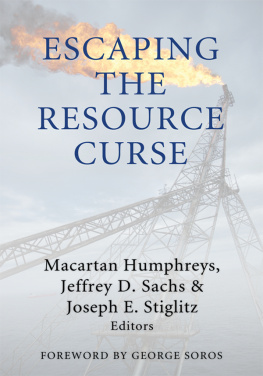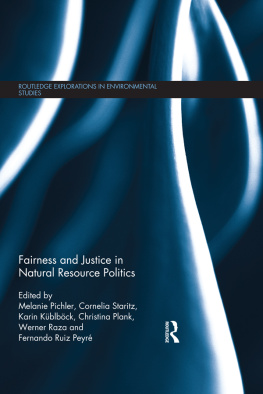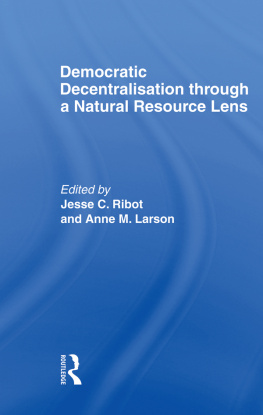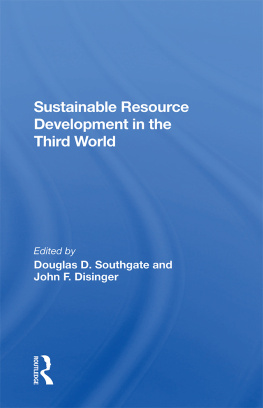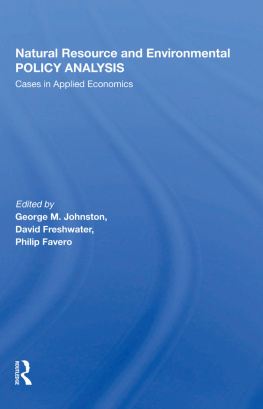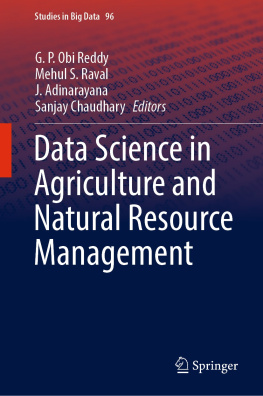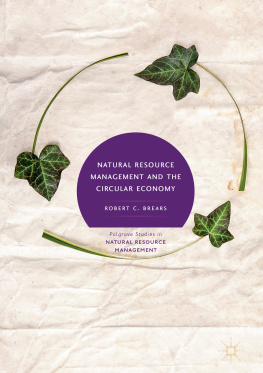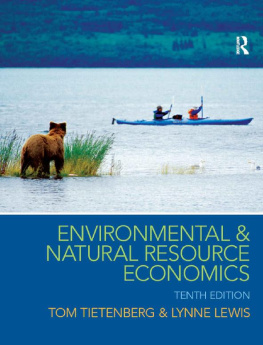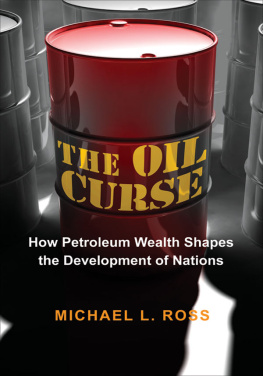The initial idea for this book came in discussions with Karin Lissakers, George Soros, and Svetlana Tsalik of the Open Society Institute (OSI). Their work and experience was invaluable for identifying key gaps in our understanding of how to respond to the problems that arise from natural resource wealth. William Masters of Purdue and Paul Collier of Oxford University played a central role in these early discussions and were instrumental in giving shape to the structure of this project. We thank them for their wisdom and insight.
We also benefited from timely inputs from practitioners and experts in the oil and gas industry. Drafts of the chapters in this volume were presented at a conference at Columbia University in July 2005 and benefited greatly from the comments and suggestions provided by participants who generously gave of their time and expertise. These include Luis dos Prazeres, Executive Director of the National Petroleum Agency of Sao Tome and Principe; Jeffrey Davis, Deputy Director of the Fiscal Affairs Department of the International Monetary Fund; Ian Gary of Catholic Relief Services; Xixi Chen, Matleena Kniivila, David OConnor, and Yimeng Zhang of the United Nations Division for Sustainable Development, Economic and Social Affairs; Kevin Conrad of the Rainforest Carbon Coalition; Keith Myers of Chatham House; Hurst Groves and David Nissen from the Columbia Center for Energy, Marine Transportation and Public Policy; and Keith Slack of Oxfam America. We thank especially Tom Heller of Stanford University who provided critical comments throughout these stages of writing.
Throughout the process, we benefited from wonderful support and guidance from Julie McCarthy, Morgan Mandeville, and Ari Korpivaara from OSI. We gratefully acknowledge financial support from OSI that made the writing of this volume possible. Shari Spiegel, Sylvia Wu, and Siddhartha Gupta from the Initiative for Policy Dialogue and Ben Cahill at Columbia University Earth Institute provided excellent support throughout this process. We would like to thank Myles Thompson and Marina Petrova at Columbia University Press for their support, guidance, and patience as well as two anonymous referees who provided thoughtful comments and criticisms on the structure of the volume and the individual chapters. The final manuscript benefited from the scrutiny of a number of readers who read through and provided written comments on the entire manuscript. For this we thank especially Laura Paler and Sylvia Wu. Special thanks to Karin Lissakers and Svetlana Tsalik, whose overall vision and perceptive comments on individual chapters have been simply invaluable.
Macartan Humphreys, Jeffrey D. Sachs, and Joseph E. Stiglitz New York, September 2006
NATIONAL ASSEMBLY
Law No. 8/2004
Oil Revenue Law
PREAMBLE
The Democratic Republic of Sao Tome and Principe shall soon be starting to receive oil revenues resulting from the exploitation of its oil resources. Related to this reality are complex strategic matters that must be anticipated, resolved and regulated so that such revenues can foster progress and sustainable social and economic development in Sao Tome and Principe.
Based on these principles, this law is adopted, guided by two fundamental ideas. The first idea is centered on the payment and management of oil revenues. An attempt was made to address the concerns shown by the international experience taking into account the national reality and the need for the Sao-Tomean people to make strategic decisions regarding their future.
For that purpose an account is establishedthe National Oil Accountin which all oil revenues shall be deposited directly, and mechanisms are introduced which are intended to ensure that such revenues will not be used indiscriminately. Thus, limits are set forth for the use of the oil revenues, such limits not excluding, however, the need to make decisions about spending on priority sectors on which expenditures will focus and the respective revenue allocation.
Similarly, this law introduces mechanisms to prevent the revenues being channeled to other accounts. Revenues may only be deposited in the State Treasury Accounts or in accounts established for that specific purpose in the name of the State, as authorized by the National Assembly.
This law establishes quantitative and qualitative limits on the amount of oil revenues that shall be used for annual budgetary expenditures. The quantitative limits define, in certain breadth, the maximum amount of annual expenditures to be financed by oil revenues. The qualitative limits determine the basic principles for the calculation of the annual expenditures within the maximum fixed limits, as follows: (I) planned and forecasts of future revenues; and (II) absence of distortions in the economy.
The finite nature of oil resources was also taken into account, as well as the need to introduce mechanisms that will allow Sao Tome and Principe to face the post-petroleum era with minimum economic distress. For that purpose, a reserve sub-account was establishedthe Permanent Fund of Sao Tome and Principein which part of the oil revenues shall be deposited, and whose use shall be strictly conditioned, except for the earnings generated from investments of its funds. Thus, it is intended for the Sao-Tomean people to continue to benefit from the yields generated by the investments of the reserve sub-account even after the oil resources come to an end.
The management and investment of the oil revenues are assigned to an Investment and Management Committee, which is the institution with the authority ascribed by law for that purpose. The Investment and Management Committee shall act pursuant to the prudent investor rule, the principles established by this law and by the management and investment policy.
This law introduces mechanisms to ensure the effective management and investment of oil revenues, and establishes different priorities according to their allocation. All revenues allocated to finance public expenditure shall be managed aiming immediate liquidity, while the revenues deposited in the permanent fund shall be managed for medium- and long-term profitability. The management and investment policy, which will guide revenue management and investment, shall reflect these principles.
The second fundamental idea of the law is centered on oil revenue management auditing, transparency and oversight mechanisms, which are considered to be of great importance to ensure that this law be enforced according to its objectives.
Two annual audits of the oil accounts, in which the oil revenues shall be deposited, shall be carried out: one by the Auditor General and the other by an internationally recognized international auditing firm.
The law establishes clear transparency and publicity rules with respect to all acts and documents related to the oil activity. On one hand, mechanisms are introduced that limit the confidentiality of contracts concerning oil resources or oil revenues, mandatory registration and disclosure is introduced for all documents and information related to the oil sector. On the other hand, all people have ample rights to access the information.
The law also creates a Petroleum Oversight Commission, with independence and administrative and financial autonomy to ensure its effectiveness, with oversight, investigative and sanctioning powers.
Finally, this law clarifies that its dispositions apply to the Joint Development Zone; it establishes a range of irreconcilable conflicts with regard to the exercise and placement in positions in the bodies created by the law; and it aggravates by one third, in their minimums, the penalties established by the general law to punish behaviors that violate the provisions of this law.
In these terms, the National Assembly sets forth, pursuant to Article 97(b) of the Constitution, the following:
Next page
